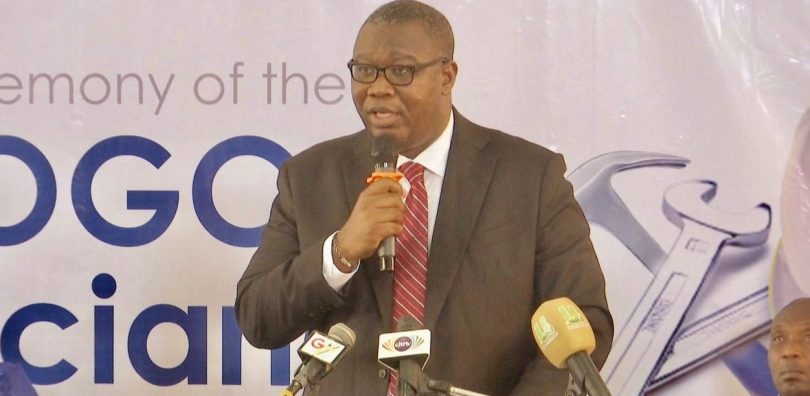In an effort to bridge the gap between academic qualifications and practical skills required in the job market, Egbert Faibille Jnr., Chief Executive Officer of the Petroleum Commission, has called on academic institutions to tailor their curricula to better prepare graduates for employment. Faibille Jnr. made these remarks during the inaugural Upstream Job Role Localisation Conference, where he emphasized the need for Ghanaian graduates to possess the necessary skills to compete with expatriates in the industry.
During his speech, Faibille Jnr. expressed concern over the prevalence of companies preferring to hire expatriates rather than local talent. He attributed this preference to the apparent disparity between the qualifications of Ghanaian graduates and the practical skills required for the job. To address this issue, he urged educational institutions to revise their curricula, ensuring that graduates possess practical skills that are aligned with the needs of the industry.
Faibille Jnr. lauded the efforts of the Petroleum Commission in providing learning opportunities for graduates through various initiatives and urged other companies to follow suit. By offering these learning opportunities, companies can play a crucial role in closing the skills gap and enabling graduates to gain hands-on experience.
The CEO emphasized the importance of practicalizing courses within academic institutions. By incorporating practical elements into the curricula, students can develop the necessary skills and competencies required by the industry. This practical approach would equip graduates with a solid foundation and make them more attractive to potential employers.
In his address, Faibille Jnr. also stressed the significance of collaboration between academia and industry. He called for stronger partnerships, wherein educational institutions actively engage with companies to ensure that the curricula remain relevant and up-to-date with the evolving demands of the job market. By working together, academia and industry can produce graduates who possess the right blend of theoretical knowledge and practical skills.
The Upstream Job Role Localisation Conference serves as an important platform for stakeholders to discuss strategies and initiatives aimed at enhancing the employability of Ghanaian graduates in the petroleum sector. The event brought together representatives from academia, industry, and government agencies to share insights, exchange best practices, and explore innovative solutions.
As the CEO of the Petroleum Commission, Egbert Faibille Jnr. plays a crucial role in shaping the direction of the industry. His call for curricula alignment and practical skills development reflects a commitment to empowering Ghanaian graduates and improving their prospects in the job market. By emphasizing the need for collaboration and practicalization, Faibille Jnr. seeks to create a workforce that is better equipped to meet the demands of the petroleum industry, ultimately driving local talent development and reducing reliance on expatriate professionals.
In conclusion, Egbert Faibille Jnr.’s call for academic institutions to align their curricula with the needs of the job market highlights the importance of practical skills development for Ghanaian graduates. By focusing on practicalizing courses and fostering collaboration between academia and industry, Ghana can nurture a highly skilled workforce capable of contributing to the growth and development of the petroleum sector.







